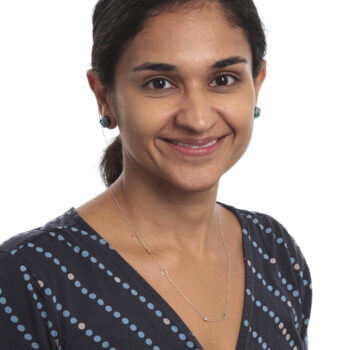Paediatric cancers: a researcher’s quest to find answers
Clinician, researcher, teacher, mother: it’s exhausting just listing the many hats that paediatric consultant oncologist Dr Aditi Vedi wears.
But we interviewed Aditi not to find out how she ended up in Cambridge UK, 12,000 miles away from her home in Sydney, nor how she raised three young children while working on her PhD (although these are also fascinating!)
Instead we wanted to find out more about her two main research projects that NIHR Cambridge BRC is funding.
It started with a question that Aditi asked herself: What does chemotherapy do to stem cells?
Aditi explained: “We know that children who have chemotherapy are at increased risk of leukaemia, diabetes, metabolic disease and heart disease in the future.
“But just recently, in the space of a year, two children who had received chemotherapy for other reasons were back in hospital because they had developed leukaemia.
“I looked in the scientific literature and, although rare, there are reported cases of this happening and no one really understands why.
“That got me thinking, can I build on what I know about stem cell behaviour from my PhD and look at what chemotherapy does to those stem cells in children?”
In her PhD, Aditi looked at how genetic mutations affect blood stem cell development in adult leukaemia patients.
She found that the gene mutation DNM3TA blocks the production of healthy blood stem cells in adult patients, which then predisposes them to leukaemia.
Now working in paediatric oncology, Aditi decided to build on her knowledge of stem cell behaviour to see how they behave in children with all types of cancer who have received chemotherapy.
That led to the research project on therapy-related AML in children, , in which Aditi will study the effects of gene mutations in blood stem cells from children who developed leukaemia after getting chemotherapy for another cancer. This is in collaboration with Dr Alex Thompson from Nottingham University and is part-funded by the NIHR Cambridge BRC and the Little Princess Trust.
At the same time that Aditi was setting up this trial, she was working on another to investigate making whole genome sequencing (WGS) faster. If successful, this trial has the potential to change clinical practice in England.
Aditi said: “WGS has changed clinical practice for many paediatric cancers, and the NHS has now commissioned this test for all children and young adults up to 25 with cancer or relapsed cancer.
“But it can take up to three months to get the results back. And for aggressive cancers like leukaemia or metastatic disease that’s often too late – and doctors have to make clinical decisions before the data’s back.”
So Aditi is working with current NHS WGS supplier Illumina on a trial to develop a pipeline to deliver WGS data in 24-48 hours.
The Ultrafast WGS study has already recruited 11 patients, and preliminary results are so promising that Aditi has applied for more funding from a number of organisations including Addenbrooke’s Charitable Trust and the Rosetrees Trust to expand the study to 100 patients, whom she hopes to recruit throughout 2024.
Aditi explained: “This is achievable, especially if we include another site and several other hospitals have approached me about joining the study, including Great Ormond Street Hospital who are already very proactive about recruiting patients into WGS.
“If we can get to 100 patients then that would hopefully provide enough data to clearly demonstrate that not only is it feasible but superior to the current NHS pipeline.
“And it could replace not just the WGS pipeline but also other tests including DNA and RNA sequencing, that the NHS currently pays for separately as needed.
“It may work out cheaper to run the single new test rather than up to five smaller tests.”
While the sequencing is the most expensive part of the trial, the funding from NIHR Cambridge BRC covers staff time, including the appointment of a genomics nurse and dedicated research time for Aditi and the geneticists involved.
Next steps
Both projects are expected to take about three to four years. After that, Aditi plans to undertake more discovery and translational science: “My passion lies in acute myeloid leukaemia (AML), which is less common than lymphoid leukaemia in children, but much more aggressive, and which hasn’t really had any major new treatments over the last two decades.
“I’d like to work with other scientists to look at how AML develops in children, and how we can target its weaknesses with newer medications.
“Research is so rewarding, it gives me a purpose for what I do in the clinic, to look for the answers to the questions that directly relate to my patients.
“That’s amazing.”
- To celebrate the work and impact of the NHS research workforce, the NIHR ran its Shape The Future campaign throughout November – find out more here: https://www.nihr.ac.uk/explore-nihr/campaigns/nhs-75/



